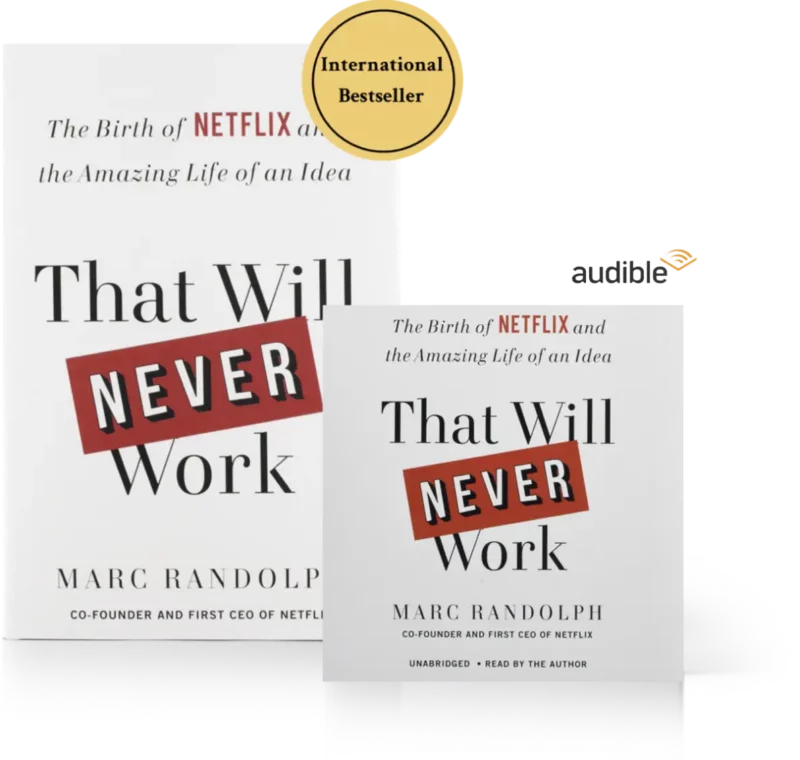The Netflix Culture in Four Words: Use Your Best Judgement.
Netflix is famous for its “freedom and responsibility” culture, in which employees are given almost unimaginable latitude to do their jobs as they see fit.


Netflix is famous for its “freedom and responsibility” culture, in which employees are given almost unimaginable latitude to do their jobs as they see fit. They vacation when they want, spend what’s appropriate, travel as they want to, and make decisions as needed – all without pre-approvals.
It sounds radical, but it’s a culture found in nearly every startup. Faced with hundreds of things to do, with the resources to tackle only a handful of them, there isn’t time for hierarchical decision making. All you can do as a leader is point to the distant mountaintop and tell your team “I’ll meet you there in a week,” and then trust that each of them will arrive on time having overcome whatever obstacles they may have encountered along the way. You’ve given them the freedom to solve problems as they see fit but coupled it with the responsibility to accomplish what is expected of them.
This works wonderfully – at least for a while – but then the inevitable happens; someone arrives to the mountain top late, or worse, without having completed their task. So, the well-meaning leader comes up with a way to ensure it doesn’t happen again. “From now on” they announce, “I want everyone to send me a weekly status report.” They pride themselves on their superior management skills, thinking “this way I’ll never be caught unaware again”.
Then another problem: someone arrives on time with their work done, but they overspent. The well-meaning leader again jumps into action. “From now on”, they proclaim, “I want everyone to get pre-approval for any expenses over $10,000.”
From there it’s a slippery slope to the new travel policy, stipulating appropriate categories for rental cars and hotels. Then a vacation policy, carefully laying out how many days off each employee should receive and how to get pre-approval to ensure you’ve chosen an appropriate time to be out of the office.
Unsurprisingly, these new policies cause your best employees to start grumbling. They hate status reports. They resent being infantilized. It doesn’t make sense that they are responsible for spending a multi-million dollar marketing budget but can’t be trusted to know the appropriate price to pay for a rental car.
As your best employees – the ones with good judgment – start leaving, left behind are the employees with not-so-good judgment. The ones who do need guidance about how much to spend, how to travel, and when to take days off. And as this happens, our well-meaning leader basks in the wisdom of putting in place all those policies, since isn’t this confirmation? All those guardrails they put in place to protect the company from bad judgment were necessary after all.
And that’s the best way to understand the Netflix cultural experiment.
Rather than putting up elaborate guardrails to protect ourselves from employees with bad judgment (and annoying everyone with good judgment), what would happen if we built a company for people with good judgment? What if we lowered the guardrails? What if there were no guardrails at all?
For instance, are you aware of the Netflix expense policy? There isn’t one. The Netflix vacation policy? There isn’t one. The Netflix travel policy? You got it. There isn’t one! The Netflix policy for everything is only four words: “Use Your Best Judgement”.
When Reed and I started the company 23 years ago, we didn’t sit down and dream this up. It was just how we acted with each other and with our early employees. It reflected how busy we were, how few resources we had, and how there simply wasn’t time for anything but freedom and responsibility.
But what sets Netflix apart isn’t the fact that we had this culture when we were 10 people. That was easy. Nor was it hard to maintain it when we had 100. It was a little unusual that Netflix kept acting this way as it passed 1,000 employees. But what makes Netflix truly exceptional is that they have managed to maintain this culture now that they are approaching 10,000 employees.
Had we not started embracing freedom and responsibility from the beginning, I question whether Netflix would have been able to come around to it later. Remember, culture is not what you say, it’s what you do. And although it’s possible as a large company to pivot to a new product, a new market, or a new business model, it’s almost impossible to pivot to a new culture.
That’s why I’m so excited for you to hear episode 15 of the That Will Never Work podcast which is now available. My guest, Markian, is the model of a successful, young entrepreneur whose social media brand, Smile Squad, boasts over 13 million followers and a healthy cash flow. But Markian knows that in addition to satisfying his large external audience, he also must satisfy a smaller but more important one: his own employees. And he knows he has to do it while he is still small. As we talk through the steps you make to translate an organic culture to a repeatable scalable one, it’s a perfect chance to hear my advice on how to make sure you’re not just talking the talk, but are actually walking the walk.
Props to Markian for recognizing that this is something he must get right while he’s still small. And it’s a powerful reminder that with culture (and in fact with everything startup-related) the very best time to do something is usually right now.
RECOMMENDED FOR YOU
Don’t Follow Me.
Podcast Episode 72
Is it a Culture Problem or a Hiring Problem?
October 25, 2022 • 38 min

